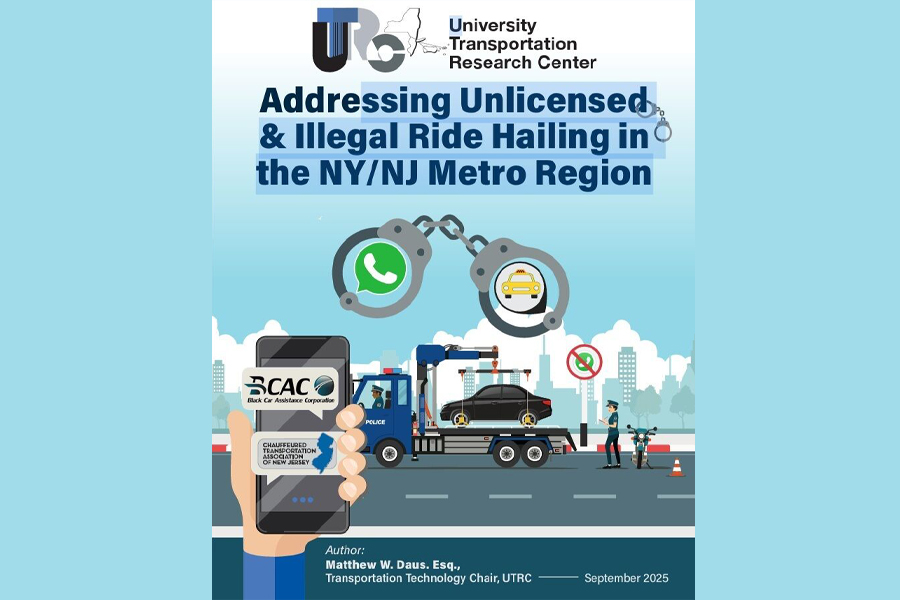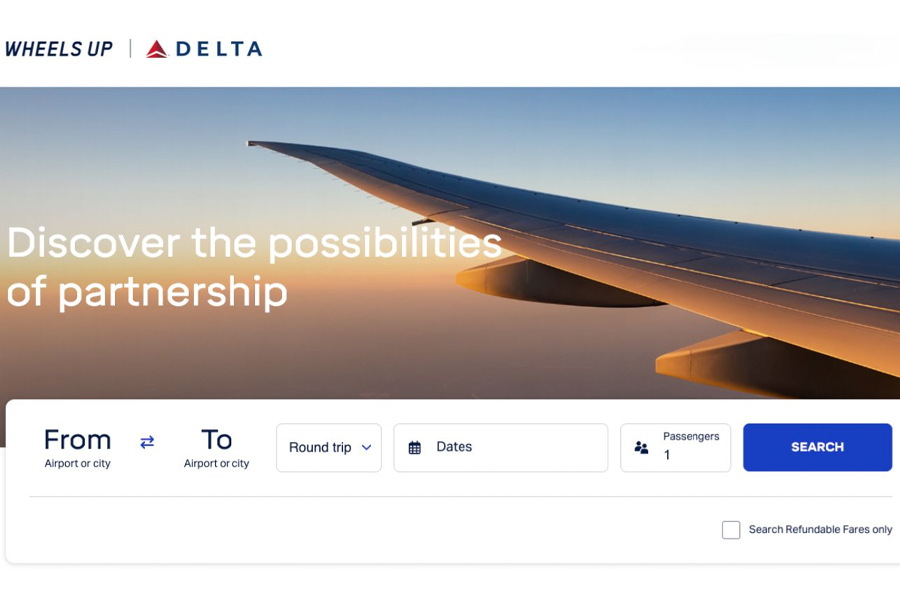A new study reveals the growing threat of unlicensed and illegal ground transportation operators in the New York/New Jersey area. The study was done by University Transportation Research Center at City College of New York, in collaboration with the Chauffeured Transportation Association of New Jersey (CTANJ) and the Black Car Assistance Corporation (BCAC).
These “rogue drivers,” said the report, operate without proper licensing, insurance, background checks or drug testing — putting passengers and the public at serious risk.
The report focuses on unauthorized taxis, limousines and off-platform rideshare drivers. It identifies the risks they pose, the regulatory gaps they exploit and the enforcement challenges confronting state and local authorities.
Aimed at policymakers, regulators, law enforcement and industry stakeholders, the report draws on legal analysis, field investigations and case studies to highlight how these drivers evade oversight and undermine public safety and legitimate businesses. The goal, according to the report, is to support a more strategic, coordinated response— offering practical solutions for enforcement and regulation in the region and insights relevant to other jurisdictions facing similar threats.
Unlicensed services, according to the report, often operate through illegal street hails or unauthorized pickups in high-demand areas like airports, nightlife zones and event venues. Passengers may unknowingly ride with drivers lacking background checks, insurance or vehicle inspections — leaving them vulnerable in case of an accident.
Unlicensed operators also undercut licensed drivers and operations by avoiding taxes, fees and safety regulations. Illegal operations persist for several reasons: barriers to lawful entry into the industry, low enforcement levels, limited public awareness and easy online advertising through platforms like Facebook, Craigslist and Yelp. Many enforcement agencies lack the resources, personnel or legal tools to keep up with the scale of the problem, especially as illegal operators adopt increasingly sophisticated tactics. The report made a number of recommendations, including:
- Expand the powers of regulatory and enforcement agencies to issue civil fines, suspend or revoke licenses and impound unlicensed vehicles. Enact laws to criminalize driver impersonation, misuse of rideshare decals and unauthorized operations at transit hubs.
- Increase targeted enforcement at high-risk locations — airports, stadiums and nightlife areas — especially during peak periods.
- Prohibit the promotion of unlicensed for-hire services through websites, apps and social media platforms.
- Enforce against licensed drivers accepting trips through WhatsApp or other unlicensed groups by requiring electronic trip record checks, issuing solicitation and non-cooperation summonses, and using repeat-offender provisions to suspend or revoke licenses, while also pursuing penalties against unlicensed base operators.
- Direct taxi and limousine regulators and port authorities to allocate sufficient resources toward detecting and prosecuting unlicensed drivers and dispatchers.
- Implement geofencing requirements, automated license plate readers and mobile reporting tools to identify unlicensed drivers at high-risk locations. Partner with transportation network companies to flag off-app solicitations and issue in-app safety alerts. Develop tools for the public to report illegal activity in real time.
- Launch public awareness campaigns to warn riders about the risks of unlicensed drivers. Train frontline workers (e.g., airport, hotel and venue personnel) to help riders identify and connect riders with legal transportation providers.
- Regulatory and enforcement agencies should collaborate with industry associations such as CTANJ to enhance intelligence gathering, share best practices and support compliant drivers and operations.
- Reform licensing requirements to reduce unnecessary costs and red tape that drive for-hire drivers underground. Offer clear legal pathways to become licensed and insured.
- Advance legislative reform.
Together, the report concluded, these strategies provide a comprehensive framework for cracking down on illegal for-hire activity, safeguarding passengers and leveling the playing field for licensed drivers and operators. The report is at https://lnkd.in/er7ASgHP












